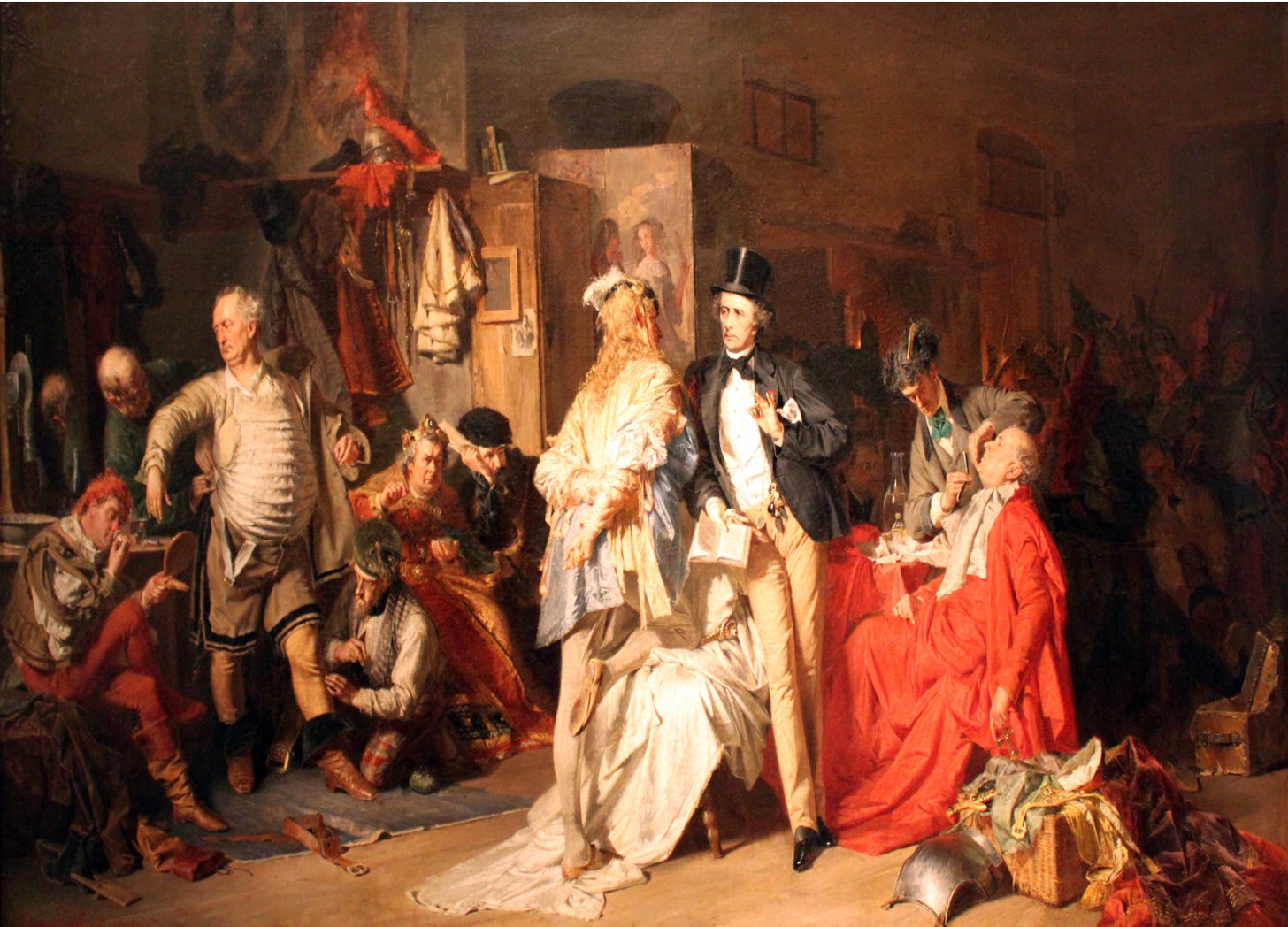When the world was young (by which I mean ‘spring of 2023’) all of the readers of Extra Muros could have attended a hooley in my kitchen without forcing Toby the housecat to vacate his resting place of choice in the middle of the linoleum floor. Thus, I will, from time to time, refresh, refurbish, and republish a piece that first rolled off the press (so to speak) during those days of unbounded optimism and excessively purple prose.
In Who’s Teaching College, Laura McKenna describes the sorry state of America’s adjunct professors. In doing this, she got me thinking about the lives of others people engaged in live performance: stage actors, dancers, musicians, and folk who entertain the crowds at Renaissance faires. With the exception of members of the last-named class (which happens to be my personal favorite), some of the people in each of these categories earn decent money. (In a tiny minority of cases, said remuneration might well be described as “indecently decent.”) Most, alas, live lives comparable to those so ably described by Mrs. McKenna. They travel from job to job, dine on dried noodles, and get no credit, let alone compensation, for the long hours they devote to the pre-performance preparation.
This flowering of Thespian poverty springs from the same source as the Steinbeckian situation of peregrine PhDs. The number of people able to sing, dance, or recite the immortal words of the Bard of Avon in public greatly exceeds the number of proper jobs in those fields. This superfluity, in turn, owes much to formal courses of study which recruit students by fostering what, for most of them, will prove to be false hope.
Don’t get me wrong, I love live theater, live music, and (as you already know) Renaissance faires. However, whenever I compare the little envelope where I keep my ticket stubs to my dragon’s hoard of audio and video files, I am reminded that my enjoyment of such things, however intense, pales in comparison to my consumption of electronic entertainment. For me, as it is for most people, live performance will, like rides in horse-drawn carriages, never be more than a rare treat.
The same is true for academic lectures. As much as I delight in viva voce exposition delivered before a properly proximate audience, I am much more likely to listen to lectures while driving, cooking, or making illustrations for the Tactical Notebook. (How’s that for a shameless plug for my other Substack?) Indeed, if I wished to replace the two or three learned podcasts I enjoy each day with scholarly speeches of the old fashioned kind, I would have to hire an adjunct professor.
For Further Reading:
To Share, Subscribe, or Support:







Like sports, performance is best enjoyed as a local, personal connection to the players. We have professionalism performance to the point of isolating ourselves from the experience. Community sports, community theater, community lectures may not rise to the level of elitism, though the may excell it, they do impact us personally and as a community no matter which side of the screen we occupy or what the economics are.